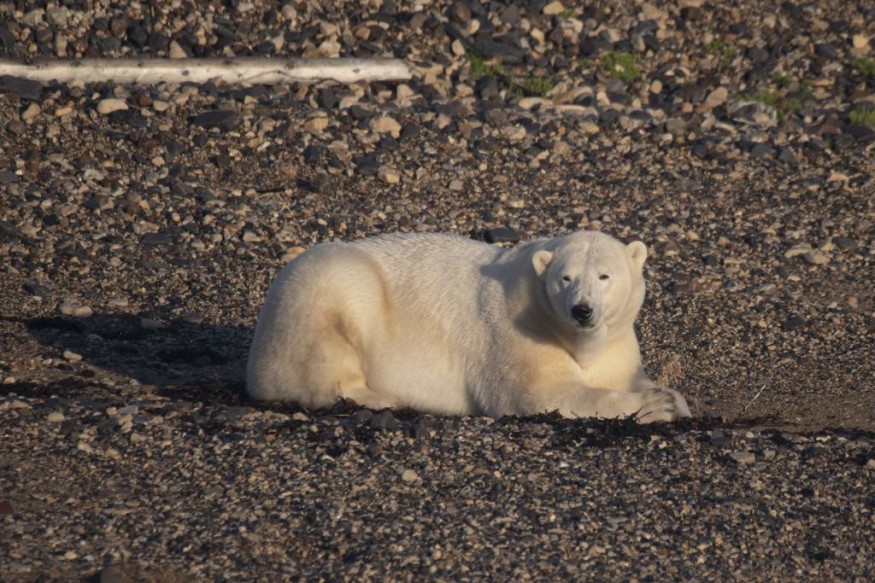
A new study reveals that polar bears would probably starve to death since they would not be able to adapt to ice-free settings.
Because of the influence of the climate crisis on Arctic regions, safe habitats for polar bears are fast disappearing. Therefore, scientists conducted a study to see whether these magnificent animals can adapt to new conditions.
Seeking Food
Polar bears use the ice that forms on the Arctic Ocean's surface during the colder months to reach their primary prey, fatty-ringed and bearded seals.
In the warmer months, as the sea ice recedes, they are believed to conserve energy and perhaps go into a hibernation-like state.
However, human-caused climate change is extending this ice-free period in parts of the Arctic, which is warming at two to four times the global average, and pushing polar bears to spend more and more time on land.
New research on 20 polar bears in Hudson Bay reveals that even in the absence of sea ice, they continue to seek food.
The study, published in the journal Nature Communications, used video camera GPS collars to track polar bears for three-week periods over three years, where the ice-free period increased by three weeks from 1979 to 2015, implying that bears spent approximately 130 days on land in the last decade.
The researchers discovered that two of the bears rested and reduced their total energy consumption to levels comparable to hibernation, while the other 18 remained busy.
According to the study, these active bears may have been pushed to continue looking for food, as individual animals were seen consuming grasses, berries, a gull, a mouse, and a seal carcass.
Three bears went for long swims, one covering 175 kilometers, while others spent time playing or nibbling on caribou antlers, which researchers described as similar to how dogs chew bones.
"Regardless of which strategy they were trying to use, there was no real benefit to either approach as far as being able to prolong the period that they could survive on land," according to lead author Dr. Anthony Pagano, from the US Geological Survey in Alaska.
Polar Bears Are Losing Weight
The researchers discovered that the bears' attempts to obtain food on land did not provide them with enough calories to equal their typical marine mammal meal.
According to the researchers, 19 of the 20 polar bears analyzed lost weight over the period, which is commensurate with the amount of weight lost during a fast.
That means that the longer polar bears stay on shore, the greater their risk of starvation.
Polar Bears International's lead research scientist, John Whiteman, said the research was useful since it directly evaluates polar bear energy expenditure during ice-free seasons.
"As ice goes, the polar bears go, and there is no other solution other than stopping ice loss. That is the only solution," he added.
The climate catastrophe is the primary threat to the world's 25,000 wild polar bears.
Limiting planet-warming greenhouse gases and keeping global warming below the Paris agreement's aim of 1.5C above pre-industrial levels will certainly save polar bear numbers.
However, global temperatures, which are now at 1.2 degrees Celsius, continue to climb, and sea ice dwindles.
Related Article : Consequences of Climate Change: Polar Bear Population Shrinking Due to Arctic Sea Ice Melt
© 2025 NatureWorldNews.com All rights reserved. Do not reproduce without permission.





